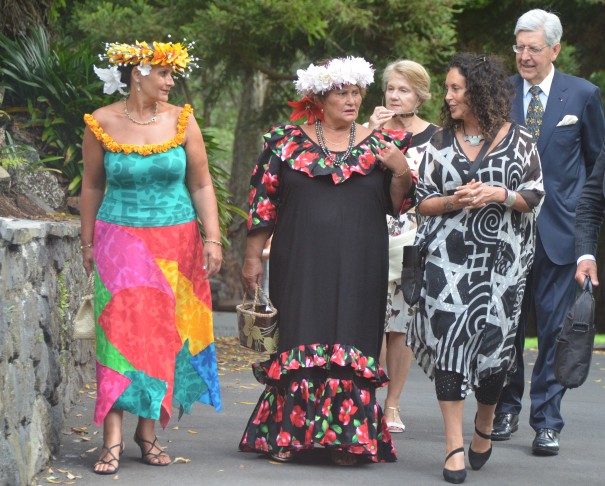Consular Corps Reception

Rau rangatira mā, e kui mā, e koro mā, e huihui nei, tēnei aku mihi māhana ki a koutou. Nau mai, haere mai ra ki Te Whare Kawana o Tamaki Makaurau. Distinguished guests, ladies and gentlemen, warm greetings to you all, and welcome to Government House Auckland
I specifically acknowledge: Joanna Kempkers, Chief of Protocol, Ministry of Foreign Affairs and Trade - tēnā koe.
It is a great pleasure for Janine and me to welcome you all to Government House today. The last time I met with the Consular Corps was just over three years ago at the Northern Club. I said then that I was looking forward to returning your hospitality at some later date and it’s great to be able to do that this afternoon, not just for the Auckland members but for those from other parts of New Zealand also.
Former US Assistant Chief of Protocol Lawrence Dunham once said ‘Consular work is the backbone of diplomacy” . All around the world, dedicated individuals are tasked with looking out for their own countrymen living or travelling abroad. From dealing with paperwork like lost passports to helping those caught up in large scale crises, the work of a consul is as varied as the people who have need of it.
The increasing diversity of New Zealand as a nation plays a huge part in that variety and it’s appropriate that we’re holding this reception in New Zealand’s most cosmopolitan city. Last month it was announced that Auckland is the fourth most culturally diverse city in the world. 39 percent of Auckland’s population was born overseas and something like 220 ethnic groups live here, making this city more diverse than Los Angeles, London and even New York . It’s easy to see why there are 73 nations represented in the Consular Corps. Indeed,we have more consular representatives than diplomatic posts in this country.
People often think of consular work in terms of “trade and travel”. The scope is much wider than business and tourism though. There are many other groups to be considered - students who come here for education purposes and dual citizens, who are the responsibility of both countries. Consuls, whether professional diplomats or working in an honorary capacity, provide essential support for all these people when needed.
The key word there is ‘needed’. Consuls are often called on in times of crisis. The last time I spoke to you was a year after the Canterbury earthquake. The work consular representatives undertook in dealing with foreign nationals caught up in the emergency and their friends and families, was still very fresh in our minds. It’s not easy work sometimes, particularly when tragic events are involved but it is extremely valuable and very much appreciated.
Your work should be evaluated in terms of service – both to this country and your own. You have a great opportunity to act as cheerleaders for your country and I also like to think that you reflect New Zealand and its interests back to your country. You connect us to a large part of the rest of the world and that’s something we value. I hope these relationships continue to grow and strengthen.
As the Māori proverb says “Waiho i te toipoto, kaua i te toiroa – Let us keep close together, not far apart”
Please enjoy the hospitality of the House this afternoon.
Kia ora huihui tātou katoa
